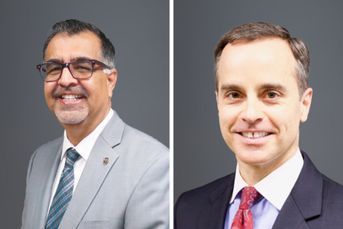The case for ‘retailization’ of alts is getting stronger: BNY Mellon

Stronger performance, growing life expectancies, and easing regulatory barriers are among the trends supporting increased adoption of alternatives.
The investment landscape is undergoing a significant transformation as alternative assets, once the exclusive domain of institutional investors and the ultra-wealthy, are becoming accessible to retail investors.
According to a new report from BNY Mellon, this shift toward democratization is being driven by stronger performance in the alternative investment space.
“In recent years, the appeal of alternatives’ past stronger returns have become sufficiently compelling to spur efforts by private markets to democratize alternative assets by broadening access to them – so-called retailization,” the report said.
Investments in assets such as private equity, real estate, and hedge funds traditionally have been limited to defined-benefit pension plans, sovereign wealth funds, and not-for-profit endowments, along with well-heeled investors. Citing data from EY, the report said 81 percent of ultra-high-net-worth individuals are invested in alternative assets.
Access to these alternative investments has been challenging for retail investors and many defined-contribution plans as a result of limited or unavailable pathways to invest. Aside from regulatory concerns about the complexity and potential risks associated with alternative assets, particularly their liquidity, high fees and minimum investment amounts have also served as barriers to entry.
Despite these challenges, the report noted a clear movement toward making these assets more accessible to individual investors, driven in part by the need for strong long-term returns to support longer life expectancies and reduce potential burdens on state resources.
“Democratizing access to savings vehicles also seemingly aligns with many governments’ social objectives as part of their environmental, social, and governance (ESG) strategy,” the report said.
In the face of those changes, several countries are adapting their investment frameworks and guidelines to facilitate easier access to alternative assets for retail and individual investors. This includes creating new product structures that could enhance future retirement incomes by making these assets more accessible.
Alternative asset managers are also evolving their offerings to cater to non-accredited individuals. While costs remain a significant barrier, innovations such as tokenization could lead to more affordable and accessible products for retail investors, BNY said.
The report also emphasized the need for more education on the benefits of including alternative assets in diversified saving or retirement plans, suggesting that individuals are likely to save more for the future if they’re nudged with proper incentives, services, and guidance. DC plan innovation that incorporates more private market investments, it added, could also help attract and retain talent in a competitive labor market.
“There could therefore be greater willingness to innovate DC plans and focus on participant outcomes, by allowing DC participants to access a return profile similar to DB plans through the inclusion of alternatives,” the report said.
Bull run not dimming demand for alternatives, says iCapital CEO
Learn more about reprints and licensing for this article.








